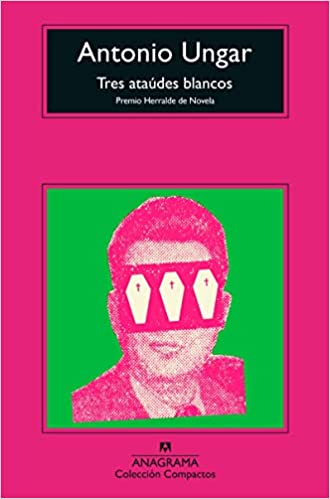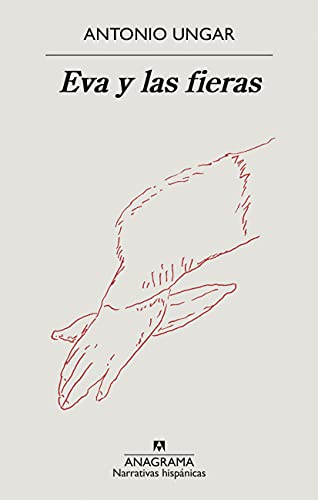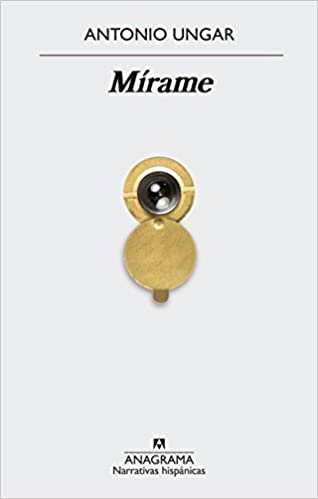When literature is an exercise for the sake of it, it ends up causing an incontestable effect of the unexpected. From the unspeakable draft to the bloody masterpiece made a feverish revelation. Something like this seems to me to happen with Antonio Ungar who offers us stories and novels with a touch of sincerity, opportunity and transcendence that only come together when one begins to write under that "just because", because it's time to tell something.
Embedded in that realism of Gabo, as an inalienable heritage of the current Colombian narrative embodied by Vásquez, Quintana o Restrepo, the case of Ungar also breaks with realism. Only approached from a strange allegory of the sordid, of the strange as a motor that can awaken the inconsistencies of reality made up of the moral, the ideological or even the social.
It's what realism has, which can be anything from dirty to magical. Curiously, the composition of our world gives a lot of itself in the narrative, perhaps more than any other genre, because the little big stories to discover are on this side, in the subjective notion of what happens under millions of possible prisms.
Ungar expresses that notion of chromatic diversity from his characters, sometimes divergent but furiously alive in their shrillness that link with the true self of each individual beyond false mediocrities. And precisely in those stridencies each one makes literary contrition, from the empathy of what is narrated as if it were lived by us.
Top 3 recommended books by Antonio Ungar
three white coffins
three white coffins is a thriller in which a lonely and antisocial guy is forced to supplant the identity of the leader of the opposition political party and live all kinds of adventures to end the totalitarian regime of a Latin American country called Miranda, suspiciously similar to Colombia.
Unbridled, unhinged, hilarious, the narrator-protagonist uses all his words to question, ridicule and destroy reality (and to reconstruct it from scratch, as new). Persecuted relentlessly by the regime of terror that controls everything in Miranda and by the abject politicians of his own side, alone against the world, the protagonist is finally caught up and hunted. Her lover, however, miraculously manages to escape, and with her the hope of a reunion and a new beginning for the story remains alive.
three white coffins It is an open, polyphonic text, ready for multiple readings. It can be understood as a fierce satire of politics in Latin America, as a refined reflection on individual identity and impersonation, as an exploration of the limits of friendship, as an essay on the fragility of reality, as a story of impossible love.
Wrapped in a thriller package that is easy to open and read, full of humor, this novel undoubtedly proposes a complex and fascinating literary game, which unquestionably consecrates one of the greatest authors of his generation in the Spanish language.
Eve and the beasts
In a boat adrift, in the depths of the jungles of the Orinoco, Eva bleeds to death and between sleep and wakefulness she wonders if she will be found, if she will reach a shore alive, if her destiny is to deliver her body to the peaks of the vultures. In the city is his remote past, from which he has managed to flee in time. In the last port is what she recently experienced, and there too, waiting for her, all those who love her: her lover and her daughter, April.
Set in Colombia at the end of the nineties, torn by the war promoted by the State between paramilitaries, soldiers and guerrillas, this story can be read as a metaphor of a country condemned to repeat its mistakes and make them worse, but also as a journey towards the interior of Eva's soul, a stubborn life that, like that of the jungle, refuses to shut up.
Based on real events, written in clear and forceful prose, the novel proposes to the reader to be Eve among the beasts and, like her, risk their lives for others, which here is all of us.
Look at me
«On the other side of the courtyards, on the fifth floor of number 21 Rue C, there is now a family. They arrived on Monday. They are dark. Hindus or Arabs or gypsies. They have brought a daughter. This is the first entry of the protagonist of this novel, a lonely, obsessive character who self-medicates, lives attached to the memory of his dead sister and lives in a neighborhood where there are more and more immigrants.
A character who writes everything in detail in his diary. Through its pages, the reader will witness how he observes his new neighbors, whom he suspects of trafficking drugs. He will also discover how he becomes obsessed with her daughter, whom he ends up spying on with hidden cameras that allow him to see her naked in the bathroom, looking out the balcony, lying in bed, being attacked by one of her brothers. she.
From that moment on, the character will go from observation to action, while he allows himself to become entangled in the spider's web of the girl he is contemplating, believing he knows everything about her, although things may not be as he thinks and perhaps someone is watching him.
And as the tension – erotic and violent – increases, the narrator begins to feel persecuted, he models enigmatic sculptures of angels in plaster and prepares to do something that will change everything... An absorbing, disturbing and disturbing novel.
A reflection on immigration and xenophobia. The portentous portrait of a character dragged by a sick obsession that, in an unstoppable crescendo, leads to terrain typical of the darkest thriller.



